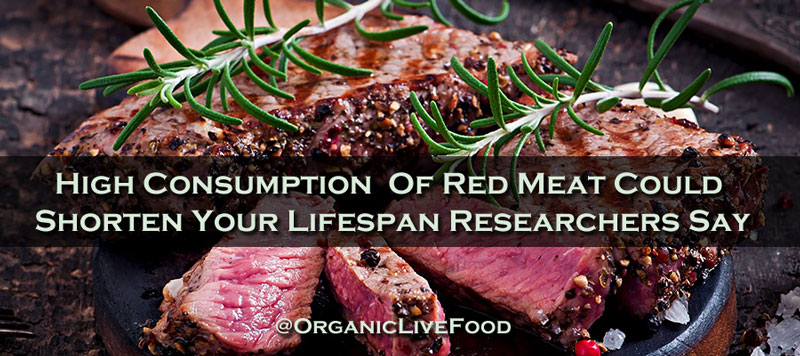
According to a recent study published in the journal JAMA Internal Medicine, people who eat red meat as their main source of protein could be shortening their life span. On the other hand, according to researchers, people who eat a vegetarian or vegan diet do live a longer and healthier life.
However, the leading author of the study Dr. Mingyang Song says that not all sources of animal protein pose the same level of risk. Also in addition to diet, other lifestyle habits such as stress, smoking, or drinking could affect people’s health.
"We found protein from red meat, particularly processed red meat, is strongly associated with mortality," says Dr. Mingyang Song. "The protein from fish or chicken is not really associated with mortality."
According to researchers, the participants who increased their daily protein intake from plants by 3% experienced 10-12% lower risk of death and cardiovascular diseases. Also those who increased their protein source from animals by 10% experienced 8% increase in risk of cardio diseases and 2% increase in risk of death.
Researchers also discovered that those who eat 12% less processed meat or red meat and 19% fewer eggs have 34% lower risk of premature death. According to Dr. Mingyang Song, processed meat such as bacon, sausage, or deli meat contribute to increased risk of premature death.
"While previous studies have primarily focused on the overall amount of protein intake -- which is important -- from a broad dietary perspective, the particular foods that people consume to get protein are equally important. Our findings also have public health implications and can help refine current dietary recommendations about protein intake, in light of the fact that it is not only the amount of protein but the specific food sources that is critical for long-term health” says Dr. Mingyang Song.
Keep in mind that most processed meats have additives and preservatives such as sodium nitrates that are linked to an increase in risk of cardio disease and cancer.
Removing red meat from your diet can cut down the intake of saturated fat, cholesterol and extra calories that are linked to so many diseases.
Beans, legumes, seeds and nuts are great source of protein and fiber. Dark green leafy vegetables such as spinach, kale, spirulina and chlorella are great source of iron, carotenoid and flavanoid antioxidants such as vitamins A and C. Keep in mind that protein from plants are rich in omega3-fatty acids, B vitamins, antioxidants and fiber and can be beneficial for the body.
If you are looking for animal protein and still want to eat healthy, you could choose wild sockeye salmon which is a great source of omega 3 fatty acids, B vitamins, and lean protein. Occasional servings of organic brown turkey breast could also be beneficial since turkey breast is a lean protein and a great source of zinc.
According to researchers, the increased risk of death happens in people who eat red meat on a regular basis and have unhealthy life style habits such as smoking, lack of exercise, unhealthy weight and excessive drinking.
"The dietary patterns between the healthy and the unhealthy groups are very different, especially in protein sources and amount of intake," says Dr. Mingyang Song. "People in the unhealthy group tend to consume protein from red meat and dairy, especially high-fat dairy. People in the healthy lifestyle group primarily consumed animal protein from fish or chicken."
Researchers also found out that other animal sources of protein such as eggs or dairy were not as unhealthy as processed or red meat, but they weren’t also as healthy as turkey breast or salmon.
"When you compare egg and dairy to red meat, they can be considered a good source, but fish or turkey would be a better source. Our findings suggest that people should consider eating more plant proteins than animal proteins, and when they do choose among sources of animal protein, fish and turkey are probably better choices” Dr Song added.
Sources:
https://www.sciencedaily.com/releases/2016/08/160801113654.htm